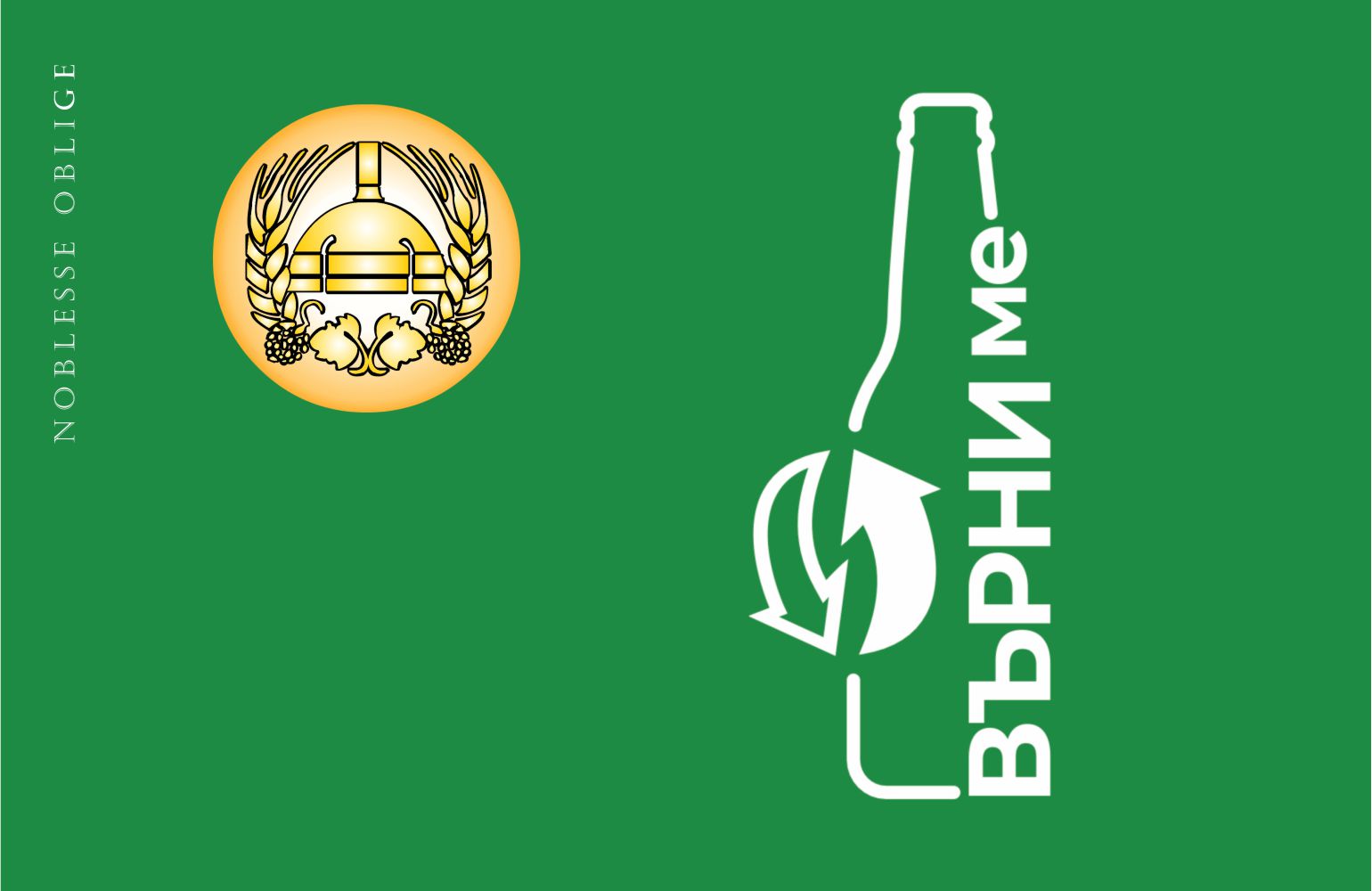An initiative for the return of recyclable glass beer bottles has been launched by companies from the Union of Brewers in Bulgaria (UBB). The new campaign "Give Me Back!" is part of the industry's constant care and responsibility towards nature conservation. This was announced by the branch organisation during the annual Spring Beer Salon, which was held in Sofia. Traditionally, the event, marking the beginning of the summer beer season, brought together media, representatives of the scientific and business circles, artists, managers of brewing companies in the country and fans of the sparkling beverage.
During the beer salon, interesting facts were presented about the ways and importance of recycling raw materials. In 2021, around 74% of glass beer bottles* were recycled in the European Union, which is an impressive achievement. This means that approximately 11.6 billion glass bottles have been recycled and reused. Overall, 83% of glass packaging has been recycled in Bulgaria in recent years. Last year, around 33.5 million reusable glass beer bottles were placed on the market in the country, with a total weight of over 11 650 tonnes. The importance of packaging recovery will continue to grow in the context of the circular economy and resource saving.
The "Bring me back!" initiative has long-term ambitions, as this year it will take place in over 10,000 commercial establishments throughout Bulgaria. Each of these locations will have a sticker with the campaign logo on their window, which will serve as a guide for consumers as to where and how they can return their glass beer bottles.
The campaign is part of the strategy for sustainable development of Bulgarian brewers. The aim is to increase the collectability of glass bottles, which can be used repeatedly in the production process. The bottles go through cleaning and disinfection as well as glass analysis before re-entering production. "At each stage of bottling, the indicators of the bottles are very strictly monitored to determine the level of durability and qualities of the glass. With proper storage, glass bottles retain the freshness, aroma and taste of beer for a long period of time and are considered classics in beer culture," noted technologist Atanas Atanasov - an expert with international experience in brewing.
Reusing recyclable glass bottles also has a green effect, as it can reduce air pollution by up to 10 times. According to statistics, reusable bottles save about 70-80% of the electricity needed to produce new ones. Using 1 tonne of reusable glass bottles saves approximately 315 kg of CO2. Glass is 100% recyclable and can be reused in other forms. It is important not to dispose of glass packaging in the environment, as it does not degrade naturally due to natural or climatic conditions. When it enters the environment, glass can remain there for the next 1 000 000 years.
Which bottles are a part of the campaign?
Only recyclable glass beer bottles that bear the "Give Me Back!" campaign symbol on their label are eligible for the campaign. These are all reusable glass beer bottles. Disposable bottles, so-called non-refillable bottles, are not part of the campaign. They should be disposed of in the glass separation containers to be recycled.
Ivana Radomirova, executive director of UBB:
"For the Union of Brewers, the "Give Me Back!" campaign is very important as the take-back of reusable beer bottles promotes circular economy practices and the introduction of take-back systems, called "deposit systems" or DRS. The European Parliament is currently considering a new Packaging and Packaging Waste Regulation which requires at least 10% of beer packaging placed on the market to be reusable by 2030. In total, 75% recycling should be achieved for all types of glass bottles, and recycled material should be incorporated into every pack. It is also envisaged to make deposit systems for the redemption of beer, soft drinks and bottled water packaging mandatory."
* Figures quoted by UBB are from the European Container Glass Federation - FEVE, Environmental Protection Agency and Glass Packaging Institute.






